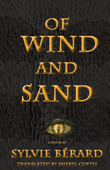Welcome to the blog for
Queer Universes: Sexualities in Science Fiction. The first anthology of this century to deal with questions of sexuality in science fiction,
Queer Universes was published in May, 2008, by Liverpool University Press.
While there has been plenty of discussion about issues of gender in science fiction, as well as about feminist sf, the idea of thinking about how sf reflects both historical and contemporary attitudes towards sexuality is a relatively new phenomenon.
Queer Universes provides a spectrum of viewpoints on the topic of sexuality and science fiction.

Science fiction cannot help reflecting on questions of sexuality. It's so deeply embedded in our lives -- even if we can imagine cultures where sexuality, reproduction, gender, family and so on operate quite differently -- that even the most chaste of sf has to make certain assumptions about how sexuality works. The base assumption, often, is that sexuality will be exactly the same in the future as it was at the time the writer invented her or his characters and set them loose in the universe. But that's only one potential scenario, and many other writers, from Robert A. Heinlein, with his line marriages and other alternative family arrangements, to Joanna Russ, with her woman-only planet of Whileaway, have found plenty of possibilities to explore in their work. Sometimes that work is about those contemporary and important questions around sexuality, gender, race and so on; sometimes sexuality is simply background information -- but even there it can be an important part of an sf story's "cognitive estrangement," to quote Darko Suvin.
Contents
Part One: Queering the Scene 1. Introduction: Queer Universes
Wendy Gay Pearson, Veronica Hollinger, and Joan Gordon
2. Alien Cryptographies: The View from Queer
Wendy Gay Pearson
3. War Machine, Time Machine
Nicola Griffith and Kelley Eskridge
Part Two: Un/Doing History4. Sextrapolation in New Wave Science Fiction
Rob Latham
5. Towards a Queer Genealogy of SF
Wendy Gay Pearson
6. Sexuality and the Statistical Imaginary in Samuel R. Delany’s Trouble on Triton
Guy Davidson
7. Stray Penetration and Heteronormative Systems Crash: Queering Gibson
Graham J. Murphy
Part Three: Disordering Desires8. ‘Something Like a Fiction’: Speculative Intersections of Sexuality and Technology
Veronica Hollinger
9. ‘And How Many Souls Do You Have?’: Technologies of Perverse Desire and
Queer Sex in Science Fiction Erotica
Patricia Melzer
10. BDSMSF(QF): Sadomasochistic Readings of Québécois Women’s Science
Fiction
Sylvie Bérard
Part Four: Embodying New Worlds11. ‘Happy That It’s Here’: An Interview with Nalo Hopkinson
Nancy Johnston
12. Queer Nature: Close Encounters with the Alien in Eco/feminist Science Fiction
Helen Merrick
13. Queering the Coming Race?: A Utopian Historical Imperative
DeWitt Douglas Kilgore










